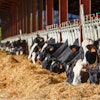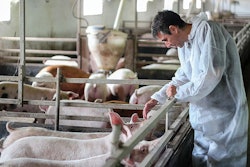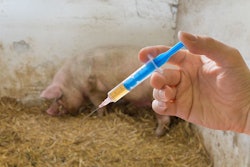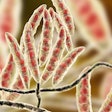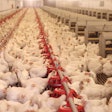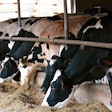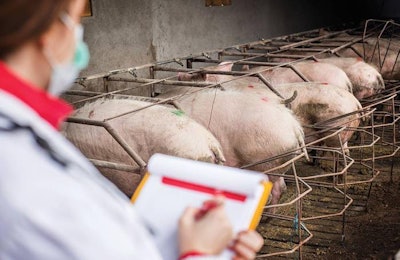
People who work with swine are at higher risk on contracting the virus
Last week, the Australian Broadcasting Corporation (ABC) reported the death of another patient from Japanese encephalitis virus (JEV).
In Australia, the human death toll from JEV rose to five last week. While the virus has been detected in one unusual species, the number of cases in swine appears to be tailing off. Since the start of 2022, almost 60 JEV outbreaks in pig herds have been confirmed in four states.
In mid-February, the man from New South Wales contracted the infection in the border area with the state of Victoria. He had been admitted to hospital soon afterwards with a severe form of the infection.
His death brings the country’s human death toll from JEV so far this year to five. Previously, one person was known to have died from the disease in each of the following states: New South Wales, South Australia, Victoria and Queensland.
Latest information from the federal Department of Health confirms 42 human cases of JEV in Australia (as of May 25). Of these, 30 have been identified by lab testing, and 12 are probable, based on symptoms and lab analyses. All have been in the same four states. With 13 and 10 confirmed cases, respectively, New South Wales and Victoria have been worst affected by JEV human infections.
In March, the country’s acting chief medical officer declared the JEV situation a “communicable disease incident of national significance.” As such, it led to a national approach on health policy, interventions and public messaging.
Pig workers, vets at particular risk
JEV can infect humans and other animals, with those at higher risk including those who work with swine — on farms, in transportation and veterinarians.
In nature, the virus is amplified by repeated infections between water birds and mosquitoes, according to the health department. While pigs can amplify JEV infections, “dead-end” hosts include humans and horses. This means these two latter species do not transmit the virus further. So the infection cannot be passed either from one person to another, or by eating or handling pork or other pig products.
Previously, the JEV has been detected only in Australia’s tropical regions, such as the Northern Territory, Queensland, and the Torres Strait. However, extreme rainfall this year resulted in virus detection in parts of the country usually free of this disease.
Transmission of JEV to the birds and mammals is carried out by mosquitoes of the genus Culex. As a result of the heavy rain and extensive flooding across large parts of Australia, mosquito numbers and ranges have increased in 2022.
Mosquito control around pig farms
When infected with the JEV through mosquito bites, the most frequently reported signs in pigs are reproductive issues in sows. In infected breeding pigs, increased rates of abortion, stillbirths and mummified fetuses are observed. Piglets that are born may be small, weak, and have neurological problems.
According to Australian government advice, key to controlling JEV starts with monitoring the population of mosquito larvae and adults in and around bodies of water near the farm.
Recommended non-chemical controls include filling in potholes, covering tanks with 1-mm mesh, and ensuring drains run freely. Guttering and vegetation around buildings should be cleared. Insect-proof screens can be fitted to doors and windows.
Authorities advise care is taken by those opting to use chemicals. The substance must be authorized for use against mosquitoes and around food animals, and applied according to label directions.
Latest JEV outbreak situation in pigs, other animals
Since the country’s first cases in mid-January, 57 premises with pigs have been affected by JEV in Australia.
According to latest reports to the World Organisation for Animal Health (OIE), most recent outbreaks were in New South Wales and Victoria in late March and early April (as of April 19). Up to that time, JEV had been detected on premises with a total of more than 427,000 pigs. Affected had been herds of all sizes from backyard to 100,000 pigs in four states — New South Wales (21 outbreaks), Queensland (7), South Australia (6) and Victoria (20).
Since the OIE notification — in early May — the animal health agency of South Australia reported further outbreaks on pig farms, bringing that state’s total to nine.
JEV is known also to infect horses. In March, the virus was detected in an alpaca showing neurological symptoms in South Australia.
This year, it was announced that a new laboratory in the Australian state of Victoria had started work to develop a first vaccine to protect pigs from JEV.

